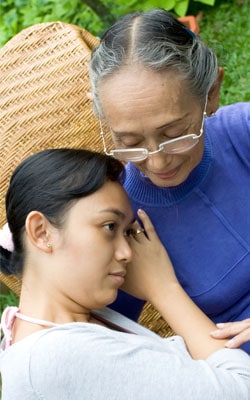When you’re not ready for hospice: the IMPACT care model

IMPACT is a Medicare model utilized at Hospice of the Twin Cities that provides support and care coordination for terminally ill patients who live at home, have Medicare Parts A & B eligibility, and continue to treat their CHF, COPD, HIV, or cancer diagnosis.
IMPACT patients are not yet ready for hospice and continue to get treatment for their illness. The model provides hospice-like support through telephonic case management along with social work, home health, and spiritual care services, adding to a patient’s plan of care and treatment. Oftentimes, stigma alone prevents patients from choosing hospice, and if such services are offered as patients treat their disease, their quality of life can improve significantly. Ultimately, they are likely to experience the benefits of hospice – seeing it as enhancing and not ending life – and will opt for hospice when ready.
 In August 2016, IMPACT enrolled a patient with end-stage Multiple Myeloma. Along with Multiple Myeloma, she had spinal stenosis and other chronic diseases. She was a fiercely independent woman, who clearly was not ready to accept that she would die because of her declining health. Neither the patient nor her family would discuss death or end-of-life decisions.
In August 2016, IMPACT enrolled a patient with end-stage Multiple Myeloma. Along with Multiple Myeloma, she had spinal stenosis and other chronic diseases. She was a fiercely independent woman, who clearly was not ready to accept that she would die because of her declining health. Neither the patient nor her family would discuss death or end-of-life decisions.
IMPACT staff had consistent interaction with the Cancer Center, her primary provider, and the patient. This, in turn, built trust. As the patient’s illness progressed, her needs increased, and she eventually agreed to enroll in hospice in January. The patient’s spunk and energy showed through when she wanted to make it known that she “rebuked” the notion that she was terminally ill.
There was a smooth transition of care from IMPACT to hospice. The handoff maintained the trust built with the patient and family. Hospice of the Twin Cities staff and the Cancer Center continued to collaborate, allowing providers and the care team to meet the needs of the patient and her family. This patient continued hospice care for 71 days.
After the patient’s death, her primary caregiver called Hospice of the Twin Cities to express appreciation for all the care and support that the patient and her family received. The primary care provider stated that they would have never been able to handle the situation without the support from both IMPACT and the hospice team.

